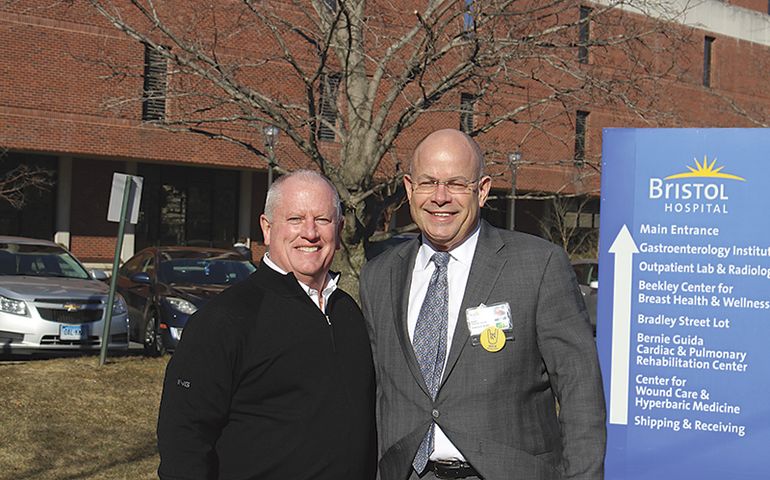
Processing Your Payment
Please do not leave this page until complete. This can take a few moments.
-
News
-
Editions
-
- Lists
-
Viewpoints
-
HBJ Events
-
Event Info
- 2024 Economic Outlook Webinar Presented by: NBT Bank
- Best Places to Work in Connecticut 2024
- Top 25 Women In Business Awards 2024
- Connecticut's Family Business Awards 2024
- What's Your Story? A Small Business Giveaway 2024 Presented By: Torrington Savings Bank
- 40 Under Forty Awards 2024
- C-Suite and Lifetime Achievement Awards 2024
- Connecticut's Health Care Heroes Awards 2024
-
-
Business Calendar
-
Custom Content
- News
-
Editions
View Digital Editions
Biweekly Issues
- April 29, 2024
- April 15, 2024
- April 1, 2024
- March 18, 2024
- March 4, 2024
- February 19, 2024
- February 5, 2024
- January 22, 2024
- January 8, 2024
- + More
Special Editions
- Lists
- Viewpoints
-
HBJ Events
Event Info
- View all Events
- 2024 Economic Outlook Webinar Presented by: NBT Bank
- Best Places to Work in Connecticut 2024
- Top 25 Women In Business Awards 2024
- Connecticut's Family Business Awards 2024
- What's Your Story? A Small Business Giveaway 2024 Presented By: Torrington Savings Bank
- 40 Under Forty Awards 2024
- C-Suite and Lifetime Achievement Awards 2024
- Connecticut's Health Care Heroes Awards 2024
Award Honorees
- Business Calendar
- Custom Content
COVID-19 promises to wreak havoc on hospital budgets
 HBJ Photo | Matt Pilon
Bristol Hospital CEO Kurt Barwis (right) with board Chairman Glenn Heiser in March 2019.
HBJ Photo | Matt Pilon
Bristol Hospital CEO Kurt Barwis (right) with board Chairman Glenn Heiser in March 2019.
As the COVID-19 coronavirus continues to spread across Connecticut, Bristol Health is losing out on millions of dollars in revenue and ramping up spending in crucial areas as it prepares for an expected surge in patients.
The independent, one-hospital system has furloughed 33 non-clinical employees and temporarily reduced the hours of approximately 270 others, including clinical personnel, according to its CEO Kurt Barwis.
“We are literally cutting to the bone,” Barwis told bond investors on a call last week.
The reduction is needed because Bristol, like many other hospitals have done at the behest of federal regulators during the ongoing pandemic, has postponed or canceled numerous elective procedures over the past month.
As a result, the hospital’s inpatient census has plummeted and procedure volumes have fallen by about half.
That’s expected to cost Bristol Health, which booked $197.5 million in patient revenue last year, upwards of $8 million per month, Barwis said.
“Cashflow-wise, we’re going to struggle,” Barwis said on the March 24 call.
In an interview Friday with HBJ, Barwis stressed that he will keep the workers he needs to deal with a wave of COVID-19 patients expected to hit within the next few weeks.
“I don’t want anyone to think I’m shedding staff I need during this crisis, I am not,” Barwis said.
Other hospitals have disclosed anticipated coronavirus-related financial hits, including UConn Health, which said last week that it could miss out on $100 million in revenue this year due to a drop in procedure volume.
Hospital overseers, including at Bristol and Yale New Haven Health, are drawing on lines of credit, and Yale last week signaled that COVID-19 could affect the late summer construction timing of an $838 million neuroscience center at its St. Raphael campus.
“At this time, YNHHS is focusing on its preparedness for the COVID-19 pandemic,” the disclosure read. “YNHHS will evaluate current and planned capital expenditures as appropriate.”

Surge, stimulus, surgery backlog
As Bristol Health works to deal with the unexpected dent in its finances, one key question for Barwis is how much of the lost revenue his system might recover.
Pre-pandemic, Bristol Health had been budgeting a $3.5-million loss for its fiscal year that ends Sept. 30, and Barwis said it’s far too complicated to accurately update that guidance yet.
“It’s too hard to guess at our losses now,” he said.
The coming surge will bring more patient revenue into hospitals.
Another major factor is the CARES Act, which Congress approved late last week. The $2-trillion stimulus package contains $100 billion for hospitals as well as a double-digit increase in Medicare reimbursements for hospitals treating COVID-19 patients.
Barwis isn’t yet sure what his hospital might get in stimulus funding.
“The relief bill looks phenomenal, but the devil is in the details,” he said.
On the back end of the surge, there will be a backlog of postponed surgeries and procedures.
Surgeons are preparing to work extra hours when the time comes.
“My surgeons are telling me the volume they are delaying they believe will stay,” Barwis said. "Those cases aren’t going to go away, they’re going to get rescheduled.”
COVID-19 stymies fiscal turnaround
Bristol Health booked a larger-than-expected operating loss of nearly $11 million last fiscal year, which was one of the reasons Barwis had a call with bond investors last week.
Barwis said significant adjustments to the health system’s “revenue cycle,” or accounts receivable, were needed after an audit.
Barwis said his team has made various improvements and may ultimately outsource is revenue-cycle management.
Procedure volumes in January and February were up and things looked promising.
“Everything was looking great and then, all of the sudden, everything comes to a screeching halt,” Barwis said.
While the financial fallout from the pandemic remains to be seen, Barwis said he’s glad about one key decision management made last summer.
Bristol Health used bond funding to “de-risk” its pension plan, taking the funds out the market and replacing the defined-benefit plan with annuities contracts.
Falling interest rates and stock market declines in recent weeks would likely have made the deal not feasible.
Barwis called the pension transaction “the smartest move we could have made.”

2022 Giving Guide
This special edition informs and connects businesses with nonprofit organizations that are aligned with what they care about. Each nonprofit profile provides a crisp snapshot of the organization’s mission, goals, area of service, giving and volunteer opportunities and board leadership.
Learn more
Subscribe
Hartford Business Journal provides the top coverage of news, trends, data, politics and personalities of the area’s business community. Get the news and information you need from the award-winning writers at HBJ. Don’t miss out - subscribe today.
Subscribe
2024 Book of Lists
Delivering Vital Marketplace Content and Context to Senior Decision Makers Throughout Greater Hartford and the State ... All Year Long!
Read Here-
2022 Giving Guide
This special edition informs and connects businesses with nonprofit organizations that are aligned with what they care about. Each nonprofit profile provides a crisp snapshot of the organization’s mission, goals, area of service, giving and volunteer opportunities and board leadership.
-
Subscribe
Hartford Business Journal provides the top coverage of news, trends, data, politics and personalities of the area’s business community. Get the news and information you need from the award-winning writers at HBJ. Don’t miss out - subscribe today.
-
2024 Book of Lists
Delivering Vital Marketplace Content and Context to Senior Decision Makers Throughout Greater Hartford and the State ... All Year Long!
ABOUT
ADVERTISE
NEW ENGLAND BUSINESS MEDIA SITES
No articles left
Get access now
In order to use this feature, we need some information from you. You can also login or register for a free account.
By clicking submit you are agreeing to our cookie usage and Privacy Policy
Already have an account? Login
Already have an account? Login
Want to create an account? Register
Get access now
In order to use this feature, we need some information from you. You can also login or register for a free account.
By clicking submit you are agreeing to our cookie usage and Privacy Policy
Already have an account? Login
Already have an account? Login
Want to create an account? Register






0 Comments